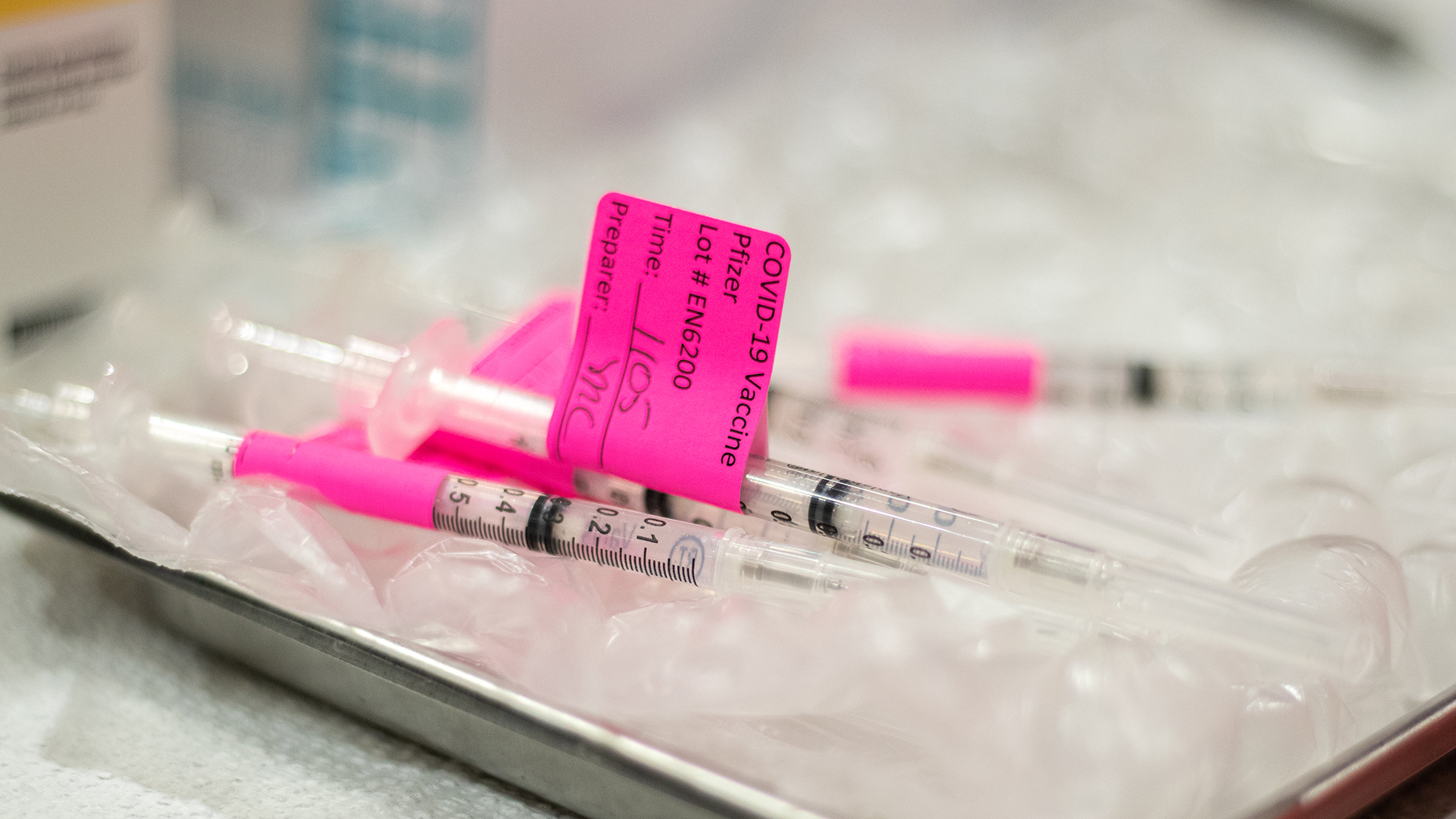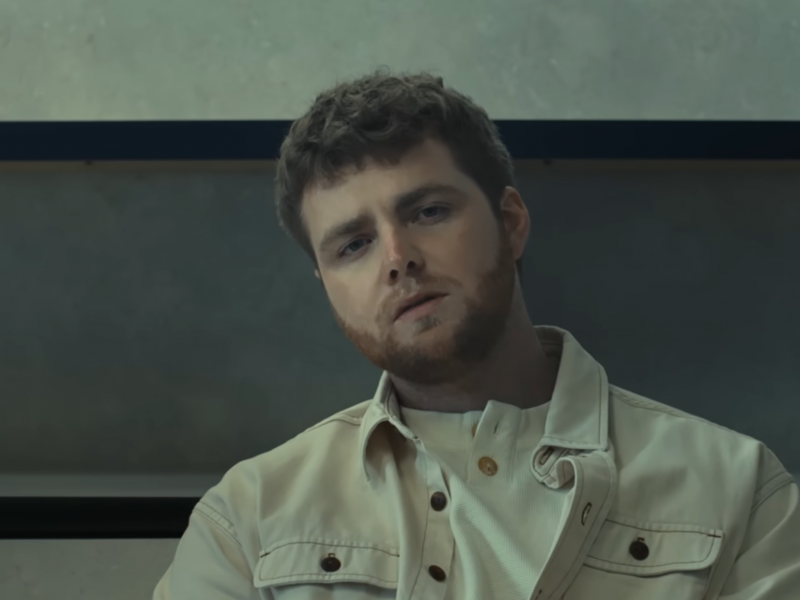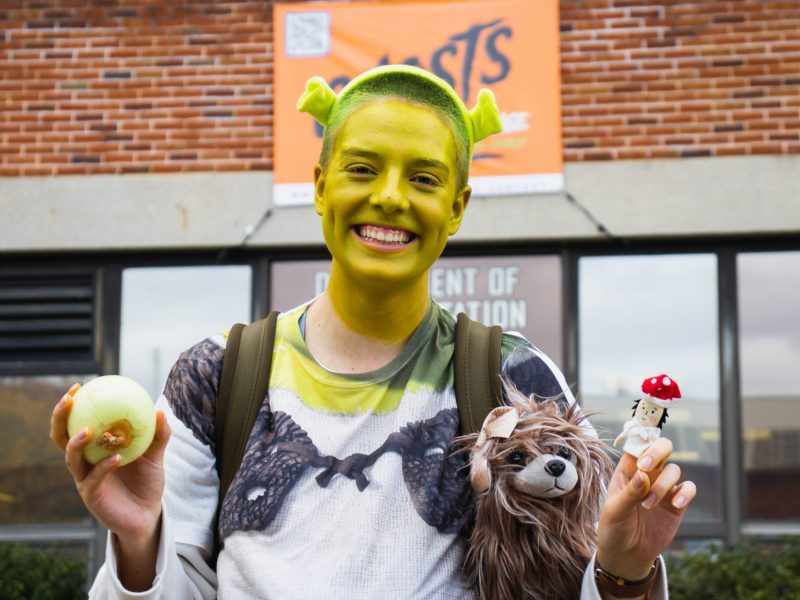I was recently fortunate enough to join nearly 50 million Americans in becoming fully vaccinated for COVID-19. At the site, as the vaccine administrator took an alcohol swab to my arm, I asked what I guess is the only small talk I can think of when someone approaches me with a needle (in strictly clinical environments, of course): “Does it hurt?”
“You tell me,” he said. And then promptly jabbed me with a Johnson & Johnson one-shot vaccine. Save for a lingering sore arm, it really didn’t hurt and I immediately walked back my question anyway. After a three-hour round trip, a year in quarantine and immeasurable global loss, what difference would it make if it did?
Obviously none.
That also extends to the side effects of the vaccine, which some may experience for 24 to 48 hours after being inoculated. I did. And very frankly, they were a bitch.
After wearing masks and social distancing since March 2020, I had truly forgotten what it was like to be sick. Like many others, I’ve spent the past year fronting as an amateur hypochondriac, spiraling into a quiet existential panic every time I felt a tickle in my throat post-parking lot hang that wasn’t quite six feet apart. Thinking back to every time I Googled “runny nose covid or allergies” felt almost laughable after experiencing actual sickness, like a headache and fatigue that quickly developed into a high-grade fever and intense chills.
It sounds trivial and insensitive to complain about something associated with the literal answer to our current problems — something billions of people are waiting to access. I see that, and I’m not trying to sound trivial. In fact, this isn’t a lament. It’s a reminder.
From the moment my appointment was booked to the six-hour process of getting to the vaccination site, waiting in line, getting the shot and driving home, I was expecting to be hit by some profound, visceral reflection on how insane this year has been and what this vaccine represents. Especially because I’m helplessly sentimental, occasionally introspective and basically built for cheesy, profound moments like that. But it didn’t come — at least not until the next day, when I was lying in bed sick, unable to fall asleep because my body couldn’t decide between heating up like a furnace or shuddering incessantly.
[I turned my phone off at night and went analog for a week. Here’s how it went.]
While I laid in a pool of sweat and despair, my dad had several flavors of Gatorade waiting on the kitchen counter, my mom was checking in on me every 30 minutes and my sister woke up at 3 a.m. to bring me a wet towel. And when I thanked my little brother for refilling my water bottle and bringing it up, he gently responded “Anytime,” which was a total lie, but a very sweet one.
I don’t say that to expose just how much I’ve regressed into a coddled little kid while living at home the past year, but to point out something I couldn’t stop thinking about all night: I can’t imagine what it was like doing this totally alone and without the luxury of being certain you would wake up the next day and be completely fine. And yet, millions of people in this country alone did exactly that, and over half a million died.
If you’re like me, you’ve been lucky enough to not have lost anyone or known somebody who has. Your life has changed drastically due to lockdown, you can’t watch a show from 10 years ago without instinctually wondering where the masks are and you don’t really remember how to talk to new people, but the very tangible loss of this pandemic might still be somewhat abstract and removed from you.
Many of us will be vaccinated in the coming months, and that’s an incredible thing. Some of us — particularly women, young people and those who have had the coronavirus before — will experience side effects. We should all celebrate this massive inflection point in what has been one of the worst years in modern history, because this is clearly a huge moment. But it’s also a solemn one.
[Quarantine Obsession: The best part of my day is my egg on toast]
That 24 to 48 hours is an inconvenience, but it’s also a physical and emotional reminder you might not have gotten otherwise; a glimpse into just the beginning of what so many people went through, and the heartbreaking idea that it meant something very different for them than it does for us.
People are, naturally, tired of waiting for the pandemic to be over. Some are operating as if it is. But dangerous variants are still surging, cases continue to spread and many vulnerable people are waiting to be vaccinated.
Optimism is warranted; complacency isn’t. And perhaps the best way to do justice to the memory of people whose lives have been distilled into a statistic is by not letting your guard down just yet.



